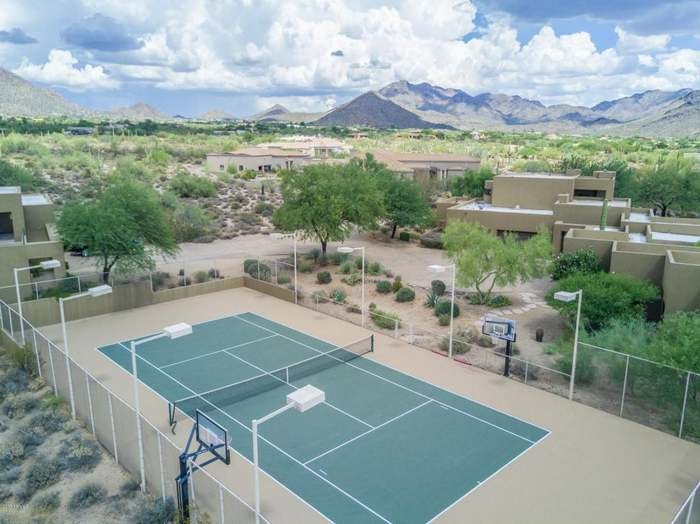You’ll find all the details you need to prepare for immersive care, from medical detox through ongoing support. Whether you’re evaluating a structured residential drug rehab program or seeking a dedicated medical detox center, this guide lays out each phase of residential addiction recovery. You’ll learn how inpatient environments work, what therapies you’ll access, and how to sustain progress long after you leave treatment.
Many adults benefit from a controlled setting that addresses both physical dependence and underlying emotional health. With more than 20 million Americans affected by substance use disorders [1], you’re joining a community committed to evidence-based care. Let’s walk through what to expect and how to build a foundation for lasting sobriety.
Understand residential addiction recovery
What is residential addiction recovery?
Residential addiction recovery refers to a structured program where you live on-site for a set period, receiving 24-hour medical oversight and therapeutic services. Unlike outpatient care, which lets you return home each day, a residential addiction treatment model immerses you in an environment designed to minimize triggers and reinforce healthy routines.
Key elements include:
- Safe housing free of substances
- Medical detox under professional supervision
- Daily therapy, education, and peer support
- Access to holistic and alternative therapies
Addiction is recognized as a medical condition, not a moral failing, which reduces stigma and prioritizes your health needs [2].
Who benefits from residential programs?
You may find residential care ideal if you:
- Have struggled with multiple treatment attempts
- Face unstable or unsafe home environments
- Experience moderate to severe withdrawal symptoms
- Live with co-occurring mental health disorders
- Need a structured routine to focus on recovery
About 8 million Americans with substance use disorders also have co-occurring psychiatric conditions such as depression or anxiety [1]. For many, a dedicated program is the first step toward stability.
Explore detox and medical support
Medical detox process
Your journey often begins with a medically supervised detox to manage withdrawal safely. At a medical detox center, clinicians will:
- Conduct an initial physical and psychological assessment
- Administer medications to ease cravings and withdrawal
- Monitor vital signs around the clock
- Provide nutritional support and hydration
If you’re seeking a substance abuse detox center, look for programs that tailor protocols to your specific needs. For example, blood pressure and heart rate checks help prevent complications, while anti-nausea treatments keep you comfortable.
Medication-assisted treatment
Medication-assisted treatment (MAT) combines FDA-approved medications with counseling to reduce cravings and support long-term recovery. Options may include:
- Buprenorphine or methadone for opioid dependence
- Naltrexone for alcohol or opioid relapse prevention
- Acamprosate for alcohol use disorder
A comprehensive detoxification & rehab program integrates MAT into each phase, improving outcomes and reducing relapse risk. Studies show that MAT can significantly increase the chances of sustained abstinence [3].
Experience inpatient care structure
Daily schedule and routines
A predictable routine helps reset your body and mind. A typical day may include:
- 7:00 AM – Wake-up and morning check-in
- 8:00 AM – Group therapy or psychoeducation
- 10:00 AM – Individual counseling or medical appointments
- 12:00 PM – Lunch and rest period
- 1:30 PM – Holistic activities (yoga, art therapy)
- 3:00 PM – Peer support groups
- 5:00 PM – Recreation or mindfulness sessions
- 7:00 PM – Dinner and evening reflection
Live-in support and supervision
Inpatient environments offer constant oversight:
- Certified nurses and medical staff on duty 24/7
- Licensed therapists facilitating daily groups
- Residential monitors ensuring safety and structure
This level of care—often called inpatient rehab treatment or inpatient residential care—guards against relapse during vulnerable early stages. It also allows immediate intervention if medical or emotional crises arise.
Comparing inpatient and outpatient
| Program type | Duration | Setting | Key features |
|---|---|---|---|
| Inpatient residential care | 30 days to 6 months | On-site housing, 24/7 medical support | Medical detox, peer groups, holistic therapies |
| Outpatient treatment | 3–6 months or more | Home or sober living | Counseling, relapse prevention, community support |
Longer stays—especially 90 days or more—are linked to better long-term outcomes [3].
Engage in therapies and support
Individual and group therapy
Therapeutic interventions address the root causes of substance use:
- Cognitive behavioral therapy to reframe negative thoughts
- Dialectical behavior therapy for emotional regulation
- Group sessions to share experiences and build accountability
Many inpatient substance abuse rehab programs blend 1:1 counseling with peer groups, ensuring you receive personalized guidance and communal encouragement.
Specialized treatment modalities
Facilities often incorporate evidence-based and holistic practices:
- Trauma-informed care for past emotional wounds
- Family therapy to rebuild relationships
- Equine or experiential therapy for nonverbal processing
Choosing a reputable residential treatment facility ensures you access both traditional and innovative modalities to support your unique journey.
Family involvement
Engaging loved ones fosters a strong support network. Family education sessions help everyone understand addiction’s dynamics, improving communication and reducing relapse triggers at home.
Benefit from private environment
Secure and confidential setting
A private campus offers discretion and safety. You’ll live in a substance-free residence with locked access and secure grounds, shielding you from external pressures and promoting focus.
For those seeking upscale accommodations, a luxury residential rehab merges comfort with clinical rigor, providing private rooms, chef-prepared meals, and resort-style amenities.
Personalized treatment plans
Recovery isn’t one-size-fits-all. At Windward Way, clinicians conduct thorough assessments to craft individualized plans. These tailor therapies, group schedules, and aftercare to match your history, preferences, and recovery goals.
Plan for lasting recovery
Aftercare and relapse prevention
Preventing relapse means anticipating challenges before they arise. You’ll learn to:
- Identify high-risk situations and emotional triggers
- Develop coping strategies and contingency plans
- Recognize early warning signs of cravings
Research shows that staying in treatment three months or longer predicts positive outcomes, with 90 percent of individuals abstinent at two years remaining substance-free at ten years [4].
Sober living and recovery housing
Structured sober homes extend the residential model into the community. Studies find that living in recovery housing during outpatient care:
- Increases program retention
- Boosts chances of satisfactory discharge
- Improves employment and legal outcomes [5]
Community support groups
Peer-led groups like AA, NA, and SMART Recovery become vital pillars. Regular meetings reinforce accountability and connect you with people who understand your journey.
Choose Windward Way services
Comprehensive continuum of care
Windward Way integrates:
- A medically supervised detox + residential treatment phase
- In-depth inpatient therapy and holistic programs
- Structured aftercare with one-year continuing care services
- Access to alumni networks and community resources
This full continuum of care ensures seamless transitions from one phase to the next, reducing gaps that can lead to relapse.
How to get started
Admission process
- Reach out via phone or online form
- Complete a confidential assessment
- Review your personalized treatment plan
- Schedule your admission date
Insurance and financing
Windward Way accepts major insurers and offers flexible payment options. Our admissions team will verify benefits and explain any out-of-pocket costs, ensuring a transparent process from day one.
Your commitment today sets the foundation for a healthier, substance-free tomorrow. With expert care, private surroundings, and unwavering support at Windward Way, you’ll have the resources and guidance needed to build lasting recovery.






